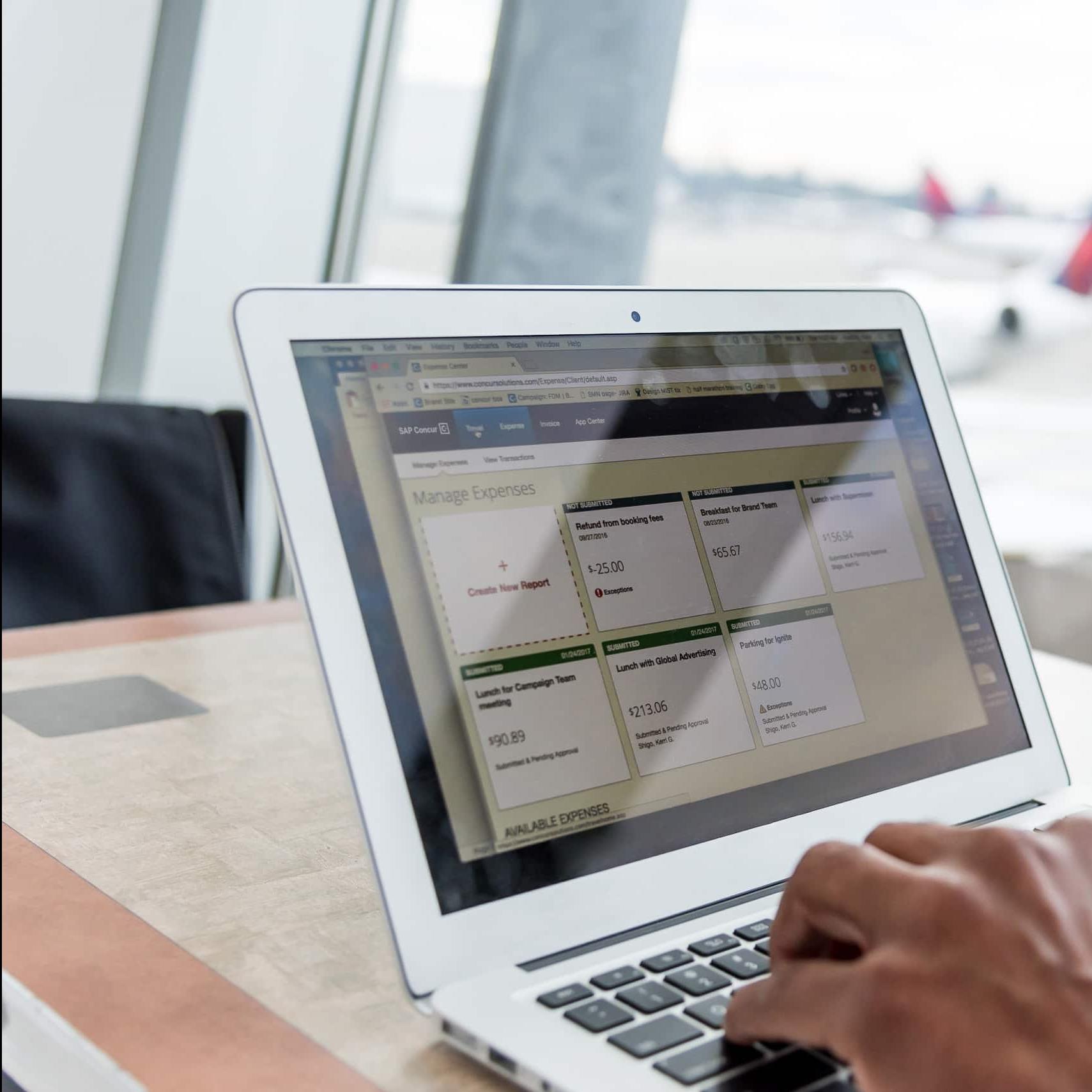Do You Need a Business Expenses Policy for your Company?
If you're concerned with keeping your company’s travel and business expenses (T&E) and overall expenses down, then the first thing to do is make sure that everyone in your company is on the same page. The reliable way of doing this is to create a business expense policy for your employees to follow.
What is an Expense Policy?
An expense policy is an internal document that defines the type of expenses employees can be reimbursed for and how they go about submitting an expense claim. Policies may differ slightly between companies, however they all contain those two components. Your T&E policy will provide a standardised set of rules that cover what expenses are permissible when travelling for business and the preferred methods and suppliers to use.
Effectively managing expenses enables far greater control when forecasting expenditure and gathering insights. It is essential to keep a relevant policy, that’s adaptable to a swift change in how employees fulfil their work-related responsibilities, as the recent global pandemic has highlighted.
Why Do You Need an Expense Policy?
Most employees in a business want to do the right thing when it comes to making an expense claim, but sometimes they just don't know what the right thing is and what constitutes a genuine expense for business purposes. This is where an expense policy comes in useful.
This policy enables your employees to make sensible decisions with what they can and cannot reimburse on their expense claim. A clear, unambiguous policy helps prevent frustration, mistakes, and even the risk of expenses fiddling or fraud. The benefits of having an expense policy are not limited to just employee understanding and satisfaction, but it is also a proven means to help your finance team gain greater insights and provide more accurate expense forecasts.
So, Where Do You Start?
If you don't already have a T&E policy, it can be a bit overwhelming to start from scratch. Every employee expense policy needs the right amount of detail for transparency within the workplace. Fortunately, we’re here to help and you can use our handy expense policy template or answer a few questions to have a customised expense policy built using our free expense policy builder. Our templates describe the standard structure of a best-practice policy, as well as what each section should cover and includes some words you could use as a starting point.
Looking for Some Tips?
Here are a few things to think about when you start writing (or revising) your policy.
-
Ditch the jargon
Write the policy to cover the basics but don't be afraid to revise it later. It probably won't be perfect on the first attempt, so remind people to use common sense as well. Also, be sure to edit it for clarity before it's published - double-check to make sure it's easy to read and not bogged down in jargon.
Avoid creating a document made up of excessive pages, your employees won’t take the time to remember every single detail. Instead, your policy should be short and concise for all your workers to follow. The easier a policy is to understand, the easier it is for your employees to adhere to. It also takes the pressure off your finance team when reviewing the related expenses incurred on a business trip and factoring in things such as foreign currency.
-
Make it fair
No one should have to be out of pocket if they spend sensibly for business reasons. Create a business expense policy that is generally regarded as fair for all employees, from line managers to C-Level and then make it easy to find and follow. A good policy is applicable to most employees in most circumstances. For example, you might want to create a section detailing issues relating to exceptional circumstances, that require prior approval. Try to avoid different rules for different sets of employees if you want it to be considered fair.
Having a clear and structured business expense policy in place for your employees will strengthen the relations between your employees, regardless of your company size or culture. Willing employees will be more likely to submit their reimbursable expenses on time, this in turn, reduces the amount of lost receipts that could have been used to reclaim VAT for tax purposes and the ability to streamline the process from authorisation to reimbursement.
-
Invite participation
Get buy-in from your staff before you implement the policy by asking team members to participate in the process. If they help develop the expense policy, they'll see why the expense process is necessary and will be more likely to adhere to the rules and encourage others to do the same. This creates an element of trust with your employees as they will have a greater understanding of their budget on business journeys, dependent on the nature of the business trip or business expense such as car rental, public transport, car parking, hotel rooms, meals, or air travel. By grouping or categorising your expense policy, this will help create a standardised set of rules across your organisation.
Time to Automate Your Expenses
Writing your T&E policy is the first step in streamlining internal corporate processes. The next step involves considering the range of expense management tools at your fingertips that will help automate and speed up your expense process. Cloud-based expense software lets employees capture receipts and submit claims in real time. This makes it easier for employees to submit claims while improving productivity and visibility for Finance.
Through automation, you can speed up the review, processing, payment and auditing of expense claims, making it easier for finance to manage expenses and budgets effectively. And with over 25 years of experience in revolutionising manual input of expenses for businesses of every size, we can help you digitise and automate your end-to-end expenses and more.
Find out more with our best practice expense policy whitepaper or click the policy template builder above.

